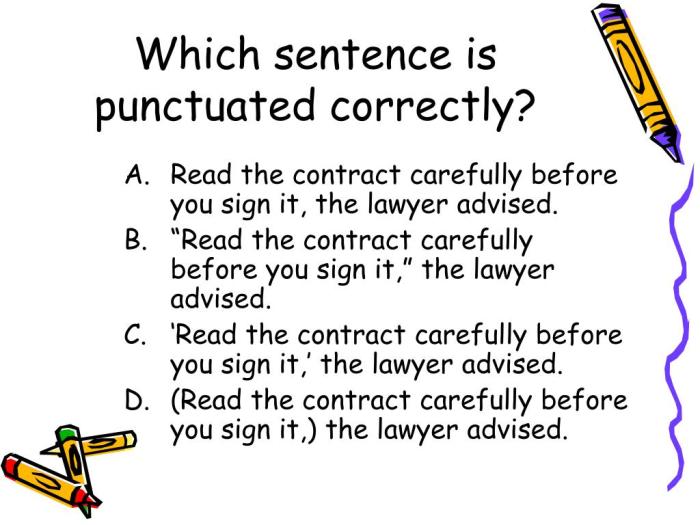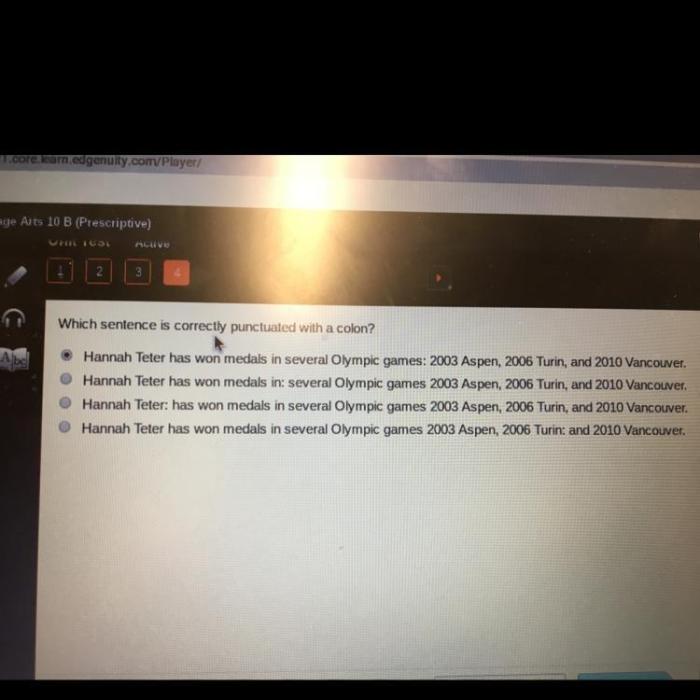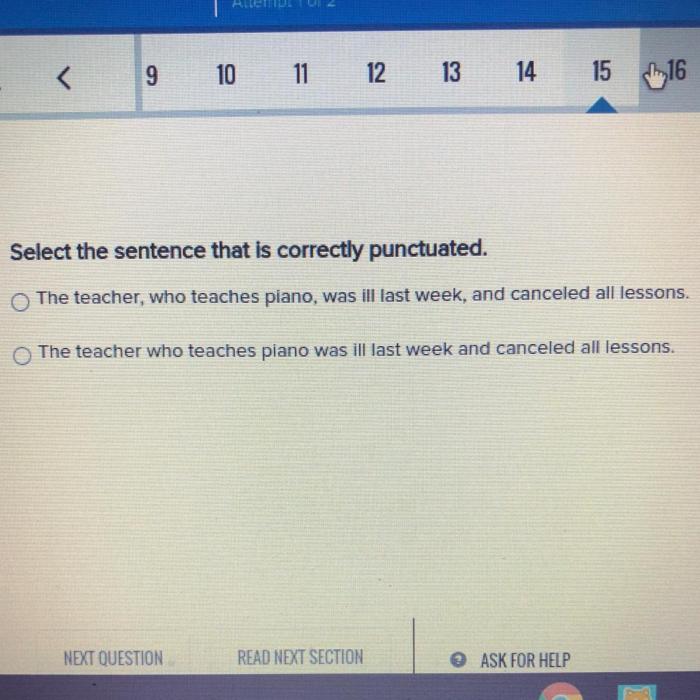Which sentence is correctly punctuated i need to buy – Exploring the intricacies of punctuation, this article delves into the complexities of “I need to buy,” examining its grammatical structure, punctuation options, and the significance of context in determining its correct punctuation. Embarking on a journey through the world of punctuation, we will uncover the nuances that transform a simple sentence into a tapestry of meaning.
Punctuation, the art of using marks to convey meaning, plays a crucial role in shaping the written word. In the case of “I need to buy,” the placement of a comma or its absence can drastically alter the interpretation of the sentence, highlighting the power of punctuation to influence our understanding.
Grammatical Structure of “I Need to Buy”

The sentence “I need to buy” follows the grammatical structure of a simple sentence, consisting of a subject, verb, and object. The subject “I” represents the person who performs the action, the verb “need” expresses the necessity or desire to obtain something, and the object “to buy” indicates the action to be taken.
Punctuation Options
The sentence “I need to buy” can be punctuated in different ways, each affecting the meaning and emphasis of the sentence:
- Period (.): A period ends the sentence declaratively, indicating a complete thought. Example: “I need to buy groceries.”
- Comma (,): A comma can be used to separate the subject from the verb or the verb from the object, creating a pause or emphasis. Example: “I need to buy, milk, eggs, and bread.”
- Exclamation point (!): An exclamation point is used to express strong emotion or emphasis. Example: “I need to buy this dress!”
Contextual Analysis, Which sentence is correctly punctuated i need to buy
The correct punctuation for the sentence “I need to buy” depends on the context in which it is used. For example:
- As a statement: When used as a statement, a period is typically used. Example: “I need to buy a new car.”
- As a command: When used as a command, an exclamation point can be used. Example: “I need to buy this book now!”
- As a question: When used as a question, a question mark can be used. Example: “Do I need to buy a ticket?”
Common Punctuation Errors
- Using a comma splice: A comma splice occurs when two independent clauses are joined by a comma instead of a semicolon or period. Example: “I need to buy groceries, I’m hungry.” (incorrect)
- Using a comma after a prepositional phrase: A comma should not be used after a prepositional phrase. Example: “I need to buy for dinner.” (incorrect)
- Using a period after a dependent clause: A period should not be used after a dependent clause. Example: “Because I need to buy groceries.” (incorrect)
Advanced Punctuation Techniques
- Using dashes: Dashes can be used to set off parenthetical expressions or to emphasize a word or phrase. Example: “I need to buy—and I mean now—groceries.”
- Using colons: Colons can be used to introduce a list or a quotation. Example: “I need to buy the following: milk, eggs, and bread.”
- Using ellipsis: Ellipsis (…) can be used to indicate a pause or an omission. Example: “I need to buy… I can’t remember what.”
Punctuation Style Guides
Punctuation style guides provide guidelines for the consistent use of punctuation in writing. Some common punctuation style guides include:
- The Chicago Manual of Style
- The MLA Style Manual
- The AP Stylebook
Cross-Cultural Punctuation Differences
Punctuation conventions can vary across different languages and cultures. For example, in some languages, a comma is used to separate thousands in numbers, while in other languages, a period is used. It is important to be aware of these differences when writing for an international audience.
General Inquiries: Which Sentence Is Correctly Punctuated I Need To Buy
What is the grammatical structure of “I need to buy”?
The sentence “I need to buy” is a simple sentence consisting of a subject (“I”), a verb (“need”), and an infinitive (“to buy”).
What are the different punctuation options for “I need to buy”?
The sentence “I need to buy” can be punctuated with or without a comma. The presence or absence of a comma affects the meaning of the sentence.
When should I use a comma after “I need to buy”?
A comma should be used after “I need to buy” when the sentence is followed by a dependent clause or a nonessential phrase.
What are some common punctuation errors made with “I need to buy”?
Common punctuation errors include using a comma after “I need to” when it is not followed by a dependent clause or a nonessential phrase.

